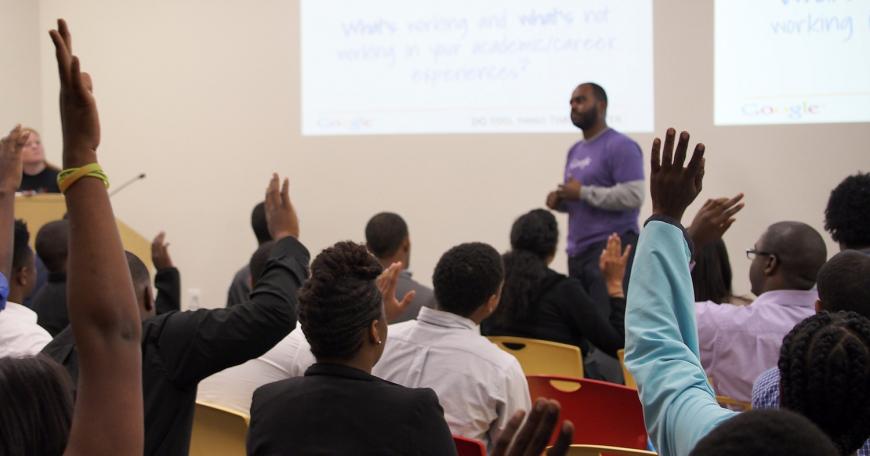Open Learning Talks: Open Education, Cultural Collection, and Curation: Focus on HBCUs

Learn about how HBCUs are creating a more inclusive canon of OER
About this event
Although more learners and educators continue to adopt and create open education resources (OERs), there has been a dearth of culturally-relevant content created by and curated for underserved and underrepresented populations. In this Open Learning Talk, we’ll hear from members of Historically Black Colleges and Universities (HBCUs) and learn about their journey to opening up and creating a more inclusive canon of OER for HBCUs and the world.
This event was free and open to the public. Watch the recording on the OL YouTube channel.
Twitter: #OLTalks
Speakers:
Dr. Effua Ampadu-Moss, Tennessee State University
Dr. Deborah Chisom, Tennessee State University
Dr. Monique Earl-Lewis, Morehouse College
Maria Feith, California State University Long Beach
Dr. Gerry Hanley, California State University Long Beach
Dr. Robert O'Keefe Hassell, Tennessee State University
Dr. Veronica McEachin, Southern University at Shreveport
Dr. Jacqueline McGehee, HBCU Library Network - Arkansas Baptist College
Dr. Arletha McSwain, Central State University
Dr. Jean Medastin, Edward Waters University
Dr. Robbie K. Melton, Tennessee State University
Dr. Sanjay Sarma, MIT Open Learning
Dr. Clarissa West-White, Bethune-Cookman University
Moderated by Curt Newton, MIT OpenCourseWare
The HBCU Affordable Learning Solutions (AL$) Community Portal (http://www.hbcuals.org/) provides any HBCU free access to the tools, technologies, and some services for them to initiate their own AL$ program and learn from their HBCU colleagues.
Open Learning Talks bring together leaders in learning to discuss new research-based ideas, technologies, and efforts in education, at MIT and around the world. See past and upcoming events in this series.
Image by EpicenterUSA from 2014 HBCU Innovation Summit. CC BY-NC 2.0
NOTICE OF VIDEO RECORDING
This live stream event is being video recorded by MIT Open Learning. The video may be reproduced and distributed for use by others, including but not limited to MIT OpenCourseWare (OCW).
By choosing to participate in the video recording, you are authorizing MIT to use the video and/or sound recording/transcript of your image and voice for MIT purposes related to education, outreach, and research.
If you choose not to participate in the video recording, you may turn off your camera and mute your microphone. Please send any questions or comments to (openlearning@mit.edu).

